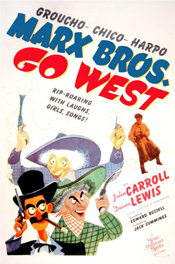Recently in WRITERS CAMP
BOOKS: LeConte Stewart Masterworks - Finally Available
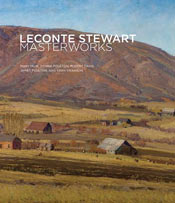
|
Utah artist LeConte Stewart (1891–1990) created images of Utah and the West at once epic and intimate. His farms, deserts, and urban landscapes capture a region and an era. Influenced by John Carlson, Maynard Dixon, and Edward Hopper, Stewart is a valued and important voice in this period of American art. This long-awaited volume includes more than 300 paintings, many never before seen or brought together in one work.
Continue Reading ...
|
POETRY: Henry Wadsworth Longfellow - The Cross of Snow (Repost - April 5, 2011)
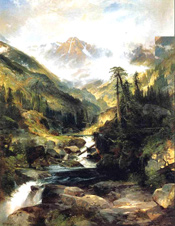 |
Happy Easter!
In 1873, a group of explorers led by Clarence King found and photographed a legendary mountain in Colorado called the Mount of the Holy Cross. ... In 1879, the American poet Henry Wadsworth Longfellow was looking through an illustrated book of western scenery. There he saw the Mount of the Holy Cross, and he subsequently wrote this poem ...
There is a mountain in the distant West
That, sun-defying, in its deep ravines
Displays a cross of snow upon its side.
Such is the cross I wear upon my breast
Continue Reading ...
|
BOOKS: Impressions of the West: Wallace Stegner (Repost - March 1, 2011)
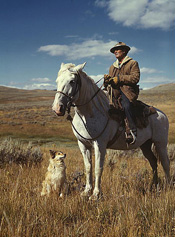 |
"Back to Wendell Berry, and his belief that if you don’t know where you are you don’t know who you are... He is not talking about the kind of location that can be determined by looking at a map or a street sign. He is talking about the kind of knowing that involves the senses, the memory, the history of a family or a tribe. ..."
The Sense of Place, by Wallace Stegner
Continue Reading ...
|
BOOKS: Impressions of the West: Thomas Hart Benton (Repost - Feb. 15, 2011)
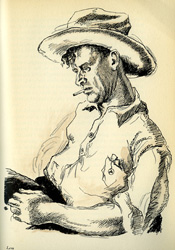
|
"There are great flat stretches of land in Louisiana, there are prairies in Illinois, Iowa, Missouri, but the experienced traveler in the United States does not confuse these with the West. Even though these more eastern prairies may present the same great vistas which are connected in our thoughts with the West, they lack the character of infinitude which one gets past the ninety-eight-degree line." - Thomas Hart Benton
Continue Reading ...
|
BOOKS: The Schopenhauer Reading Society
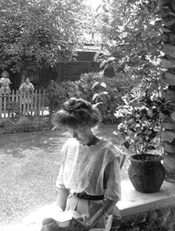
|
My great great aunt, if I can believe what my mother told me when I was a child, started the Schopenhauer Reading Society in Idaho Falls, Idaho in the 1880s or 1890s. My mother was proud of this aunt – proud that she’d been an intellectual in the early days of the state, and that she’d read books that didn’t make it on her religious community’s list of approved works. Even the title – the Schopenhauer Reading Society, named after the philosopher, professional curmudgeon and pessimist Arthur Schopenhauer – seemed to be a statement of my aunt’s independent spirit. ...
Continue Reading ...
|
BOOKS: Gary Cooper – Enduring Style
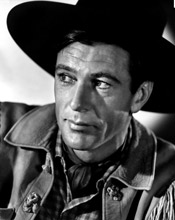
|
“He conveyed a straightforwardness and an honest, American handsomeness that seemed to both ignore and rise above the contrived glamour and studied posturing that had characterized so many other film heroes...No matter what costume he put on, he looked like he owned it. The camera loved him, and so did the box office.” – Gary Cooper: Enduring Style
Continue Reading ...
|
POETRY: The Morning of the Morning
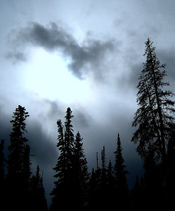
|
By Mary Crow, Poet Laureate of Colorado:
Why let it matter so much?: the morning’s morningness,
early dark modulating into light
and the tall thin spruces jabbing their black outlines at dawn,
light touching the slope’s outcroppings of rock and yellow grass,
as I sit curled under blankets in the world
after the world Descartes shattered,
a monstrous fracture
like the creek’s water surging through broken ice.
Continue Reading ...
|
BOOKS: Impressions of the West: Willa Cather
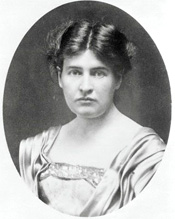
|
"'Because,' he roused himself from his abstraction and looked about at the company, 'because a thing that is dreamed of in the way I mean, is already an accomplished fact. All our great West has been developed from such dreams; the homesteader`s and the prospector`s and the contractor`s. We dreamed the railroads across the mountains, just as I dreamed my place on the Sweet Water. All these things will be everyday facts to the coming generation, but to us--' Captain Forrester ended with a sort of grunt. Something forbidding had come into his voice, the lonely, defiant note that is so often heard in the voices of old Indians."
Continue Reading ...
|
BOOKS: Impressions of the West: Walter Van Tilburg Clark
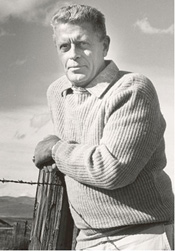
|
"The Ox-Bow was a little valley up in the heart of the range. Gil and I had stayed there a couple of days once, on the loose. It was maybe two or three miles long and half or three quarters of a mile wide. The peaks were stacked up on all sides of it, showing snow most of the summer. The creek in the middle of it wound back on itself like a snake trying to get started on loose sand, and that shape had named the valley. ..."
Continue Reading ...
|
BOOKS: 'The Proper Function of Man is to Live'
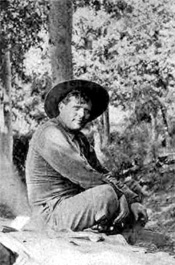
|
"I would rather be ashes than dust! I would rather that my spark should burn out in a brilliant blaze than it should be stifled by dry rot. I would rather be a superb meteor, every atom of me in magnificent glow, than a sleepy and permanent planet. The proper function of man is to live, not to exist. I shall not waste my days in trying to prolong them. I shall use my time." - Jack London, speaking to a reporter, shortly before his death in 1916
Continue Reading ...
|
BOOKS: Before Lassie, There was Rin Tin Tin
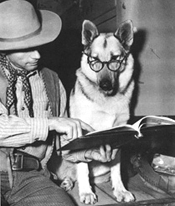
|
”He believed the dog was immortal,” is the opening line of the book Rin Tin Tin, The Life and the Legend written by Susan Orlean. The story begins when Corporal Lee Duncan found the pup in a bombed out kennel in France during World War One. The dog went on to make over 23 films, and he was the subject of books, radio programs and television. In the end it was not the tricks or the feats of power that made the dog a star, it was and remains the unwavering bond between humans and man's best friend that made him a household name and an icon of Hollywood history.
Continue Reading ...
|
BOOKS: Impressions of the West: Ivan Doig
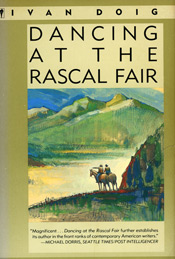
|
"The poor old rest of the earth could hold to whatever habit of axis it wished, but this Two Medicine country answered to a West Pole, its own magnetic world top here along its wildest horizon."
Continue Reading ...
|
BOOKS: Impressions of the West: James Crumley
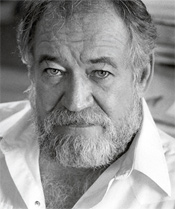
|
But in the canyon of Hell Roaring Creek, where I live, when the morning breezes stirred off the stone-cold water and into the golden, dying rustle of the cottonwoods and creek willows, you could smell the sear, frozen heart of winter ...
Continue Reading ...
|
POETRY: Desert Survival
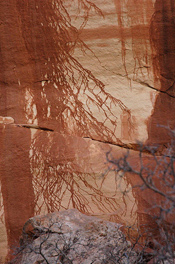
|
I have seen a quiet creek explode into a 500 year event flood rampaging past my home. I have heard boulders bouncing through the water and watched trees float like barges through the chaos with a calm serenity. ...
Continue Reading ...
|
POETRY: Mitch Cohen - A Lake in Oregon
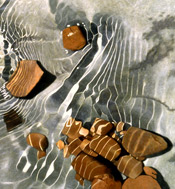
|
…A slight purling wash
plays the bound of pebbled shore.
Gnat clouds at pier’s end
as the cool sets in…
Continue Reading ...
|
Impressions of the West: Jack Kerouac
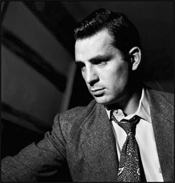 |
"I wondered what the Spirit of the Mountain was thinking, and looked up and saw jackpines in the moon, and saw ghosts of old miners, and wondered about it."
Jack Kerouac, On the Road
Continue Reading ...
|
QUOTES: O'Henry
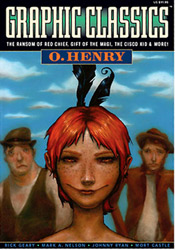 |
“He swayed on his horse; had he been on foot, the earth would have risen and conquered him; but in the saddle he was a master of equilibrium, and laughed at whisky, and despised the centre of gravity.”
O’Henry from Heart of the West
Continue Reading ...
|
BOOKS: Impressions of the West: John McPhee
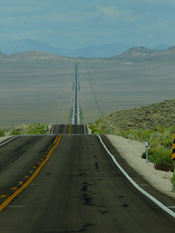 |
“Basin. Fault. Range. Basin. Fault. Range. A mile of relief between basin and range. Stillwater Range. Pleasant Valley. Tobin Range. Jersey Valley. Sonoma Range. Pumpernickel Valley. Shoshone Range. Reese River Valley. Pequop Mountains. Steptoe Valley. ... Each range here is like a warship standing on its own, and the Great Basin is an ocean of loose sediment with these mountain ranges standing in it ..."
Continue Reading ...
|
BOOKS: Impressions of the West: Thomas McGuane
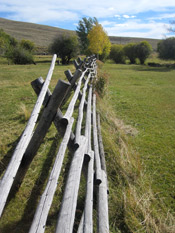 |
Thomas McGuane’s Keep the Change is the story of Joe Starling, who grew up in Montana and moved to New York to become a successful painter. When he decides to move back to a ranch in Montana (“What made you want to go back to Montana?” “Nothing else seems to be home.” “Is that important?” “It is to me.”), he rediscovers what he loved about the western sky and grass and smell in the air.
Continue Reading ...
|
QUOTES: Impressions of the West: Marx Brothers
LETTERS: Vanishing Point: America's Great Frontier
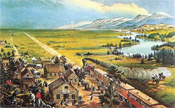 |
In 1868 the lithography firm of Currier and Ives produced a print illustrating a railroad heading into the American West. The print captured the spirit of the times. It was still the early decades of westward expansion and the American people persisted in seeing the west as a near-infinite frontier with abundant resources. The Currier and Ives print simply put into pictorial form the image most people already had of the western half of the country.
Continue Reading ...
|
POETRY: Baxter Black – Black in the Saddle
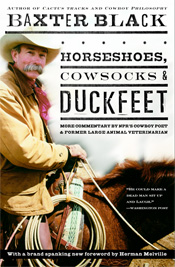 |
The New York Times lauds him as ‘…probably the nation’s most successful living poet.’ Baxter Black describes his success this way…“There will always be a need for someone who can think stuff up.” ...
Continue Reading ...
|
BOOKS: Impressions of the West: D. H. Lawrence
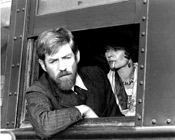 |
"In a cold like this, the stars snap like distant coyotes, beyond the moon. And you'll see the shadow of actual coyotes, going across the alfalfa field. And the pine trees make little noises, sudden and stealthy, as if they were walking about.
Continue Reading ...
|
BOOKS: Impressions of the West: Thomas Pynchon
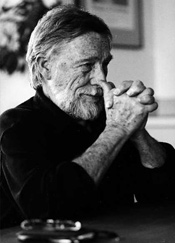
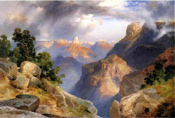 |
"This is the kind of sunset you hardly see any more, a 19th-century wilderness sunset, a few of which got set down, approximated, on canvas, landscapes of the American West by artists nobody ever heard of, when the land was still free and the eye innocent, and the presence of the Creator much more direct. ..."
Continue Reading ...
|
POETRY: Reg Brewer - Windmill (1925)
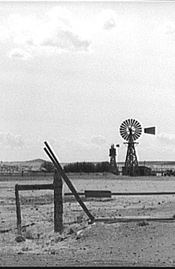 |
I stand where weathers beat my breast,
Where every wind turns round my sails,
I stand where summer sunbeams rest,
And where the winter flings his gales.
Continue Reading...
|
POETRY: Henry Wadsworth Longfellow - The Cross of Snow
 |
In 1873, a group of explorers led by Clarence King found and photographed a legendary mountain in Colorado called the Mount of the Holy Cross. ... In 1879, the American poet Henry Wadsworth Longfellow was looking through an illustrated book of western scenery. There he saw the Mount of the Holy Cross, and he subsequently wrote this poem ...
There is a mountain in the distant West
That, sun-defying, in its deep ravines
Displays a cross of snow upon its side.
Such is the cross I wear upon my breast
Continue Reading ...
|
BOOKS: Impressions of the West: Walt Whitman
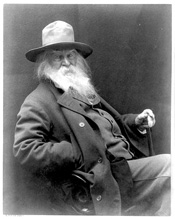 |
Walt Whitman originally wrote ‘Passage to India’ in 1870, and first published it in the 1871 edition of Leaves of Grass. There are many possible readings of the poem – one is about the flight of the soul toward transcendent wisdom:
I, turning, call to thee, O soul, thou actual Me,
And lo! thou gently masterest the orbs,
Thou matest Time, smilest content at Death,
And fillest, swellest full, the vastnesses of Space.
But on his way toward ‘all the seas of God,’ Whitman also follows a down-to-earth path, one that takes him into the territory of the American West, newly opened by the transcontinental railroad ...
Continue Reading ...
|
BOOKS: Impressions of the West: Mark Twain
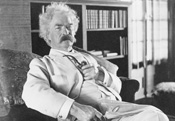
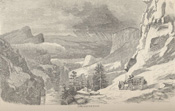 |
In 1861, at the tender age of 26, Mark Twain embarked on several years of 'variegated vagabondizing' - via an overland stage coach - in the Far West. The original purpose for the journey was to work as private secretary to his brother, who had just been appointed the Secretary of Nevada Territory. Twain envied his brother because: "Pretty soon he would be hundreds and hundreds of miles away on the great plains and deserts, and among the mountains of the Far West, and would see buffaloes and Indians, and prairie dogs, and antelopes, and have all kinds of adventures, and may be get hanged or scalped, and have ever such a fine time, and write home and tell us all about it, and be a hero."
Continue Reading ...
|
BOOKS: Impressions of the West: James Joyce
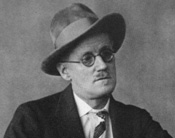
 |
James Joyce isn't the first name that leaps to mind among authors who have written about the American West. But he spoke about it at least once, in his collection of short stories, Dubliners - first published in 1914, although under development since 1905. In the autobiographical short story, An Encounter, Joyce describes how he and his friends used to play:
"It was Joe Dillon who introduced the Wild West to us. He had a little library made up of old numbers of The Union Jack, Pluck and The Halfpenny Marvel. ...
Continue Reading ...
|
BOOKS: Impressions of the West: Gary Snyder
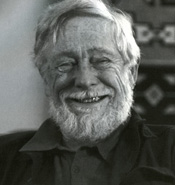 |
"It's quite clear that all of the year-round spring sites on the Sierra ridge that I live on were Indian settlements. Grinding stones are around there, and the oaks are bigger. They were nourished by special treatment - it's quite interesting to see, and it has taken me years to develop the eye to see that. ..."
Continue Reading ...
|
BOOKS: Impressions of the West: Wallace Stegner
 |
"Back to Wendell Berry, and his belief that if you don’t know where you are you don’t know who you are... He is not talking about the kind of location that can be determined by looking at a map or a street sign. He is talking about the kind of knowing that involves the senses, the memory, the history of a family or a tribe. ..."
The Sense of Place, by Wallace Stegner
Continue Reading ...
|
BOOKS: Impressions of the West: Robert Penn Warren
 |
"...Then I was traveling through New Mexico, which is a land of total and magnificent emptiness with a little white filling-station flung down on the sand like a sun-bleached cow-skull by the trail..."
All the King’s Men (p. 376-377), by Robert Penn Warren
Continue Reading ...
|
BOOKS: Impressions of the West: Thomas Hart Benton
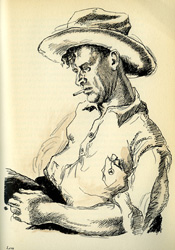 |
Read the first in our series on Impressions of the West from great authors:
"Where does the West begin?
Strung in a zigzag pattern up and down the ninety-eight-degree line, there is a marked change of country which is observable wherever you journey westward, whether in the North, the middle country, or the South. About this line, though the exact distance from it is highly variable, the air becomes clearer, the sky bluer, and the world immensely bigger. There are great flat stretches of land in Louisiana, there are prairies in Illinois, Iowa, Missouri, but the experienced traveler in the United States does not confuse these with the West. Even though these more eastern prairies may present the same great vistas which are connected in our thoughts with the West, they lack the character of infinitude which one gets past the ninety-eight-degree line.
Continue Reading ...
|
BOOKS: Pioneer Woman: Black Heels to Tractor Wheels
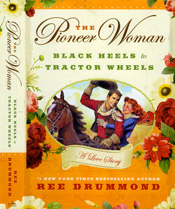 |
The Pioneer Woman is my favorite blogger. I admit that I check her blog every day and I care about Charlie, Kitty Kitty, the Pesky Brother-in-law and of course the illusive Marlboro Man, but most of all I enjoy Ree’s stream of consciousness ramblings about the ranch and her life.
Continue Reading ...
|
BOOKS: An Interview with James V. D'Arc: When Holloywood Came to Town
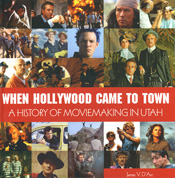 |
Read James V. D'Arc's descriptions of writing When Hollywood Came To Town: A History of Moviemaking in Utah and his favorite experiences while researching it.
Continue Reading ...
|
BOOKS: The Mystery of Everett Ruess: An Interview with W. L. Rusho
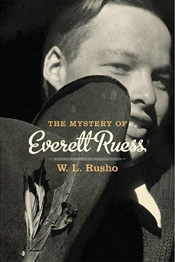 |
The story of Everett Ruess, who disappeared in the wilderness of Southern Utah in 1934, has for decades been one of the most intriguing mysteries of western lore. A Californian off on an adventure at age 20, he loved poetry, nature, art, and beauty. His family tracked his wanderings for four years, and then Everett disappeared without a trace.
In 2008 an old Navajo Indian came forward with information that he had witnessed a murder in 1934, probably that of young Ruess. The bones were recovered, DNA testing was done, National Geographic Adventurer picked up the story, and the family reacted.
In a new epilogue, author Rusho confronts the truth.
Continue Reading ...
|
LETTERS: The Zion Canyon by Alfred Lambourne
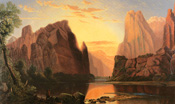 |
"There is something about the vastness, the solemnity, of the Zion Canyon that is scriptual, and Homeric. It is a nature epic, it places us among the primitive. One feels there a grandeur akin to the thoughts of Aeschylus and the words of holy writ. To describe it truly one would need the simplicity and strength of the antique, the reverence of the prophets, and 'the large utterance of the early gods'."
Alfred Lambourne
Continue Reading ...
|
POETRY: Everett Ruess: 'Pledge to the Wind'
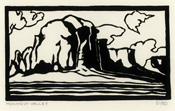 |
”By the strength of my arm, by the sight of my eyes,
By the skill of my fingers, I swear,
As long as life dwells in me, never will I
Follow any way but the sweeping way of the wind.”
Continue Reading ...
|



